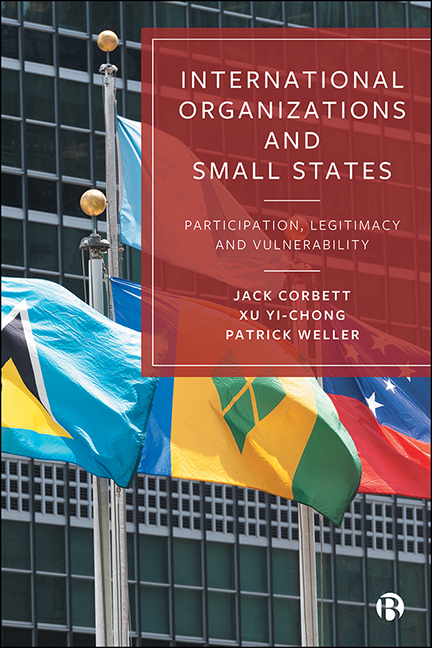6 - Expanding the Agenda at the WHO and the WIPO
Published online by Cambridge University Press: 13 May 2022
Summary
The climate and economic vulnerabilities of SIDS are now well established and widely accepted by IOs. But the idea that small size creates specific vulnerabilities is not restricted to these policy arenas. Indeed, once the idea that being small is a unique condition is accepted, it is no great leap of imagination to consider how other policy areas might be shaped by state size. In doing so the relevant IOs have the potential to become co-opted to the SIDS agenda. For instance, food quality is one of the main drivers of health outcomes and so small, remote economies are more vulnerable to price fluctuations and availability of supplies. Likewise, economies of scale – the cost of equipment and pharmaceuticals, and the availability of skilled labour – limit medical treatment in small states. But, despite their interests and the fact that individual small states have found the WHO to be receptive to these arguments, SIDS do not have the same profile in that IO as they do in the UNFCCC. Likewise, SIDS may have intellectual property concerns but, like many middle powers with few direct interests, they rarely engage with the WIPO.
In this chapter we explore the absence of small states in these two IOs. This absence is relative: we are not claiming there is no activity but rather that this activity has not generated the same profile and attention for SIDS, as a global group, that it has in the IOs we covered in the previous chapters. Indeed, in the interests of generating ‘throughput’ legitimacy these IOs are much more interested in finding a way to serve the small states agenda than the small states themselves who have typically been passive members. These cases therefore reinforce our claim that to understand the variation in outcomes across institutions we need to account for both sides of the story: the interaction between IOs and small states.
To underscore this point, we reverse the structure used in the previous two chapters – we start with the IOs and then discuss the SIDS. This reversal reflects that the participation of SIDS and the adoption of the SIDS agenda in these IOs have largely been supply-rather than demand-driven. It has also typically been tokenistic.
- Type
- Chapter
- Information
- International Organizations and Small StatesParticipation, Legitimacy and Vulnerability, pp. 145 - 165Publisher: Bristol University PressPrint publication year: 2021

